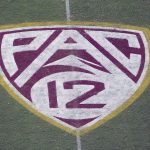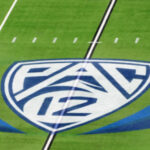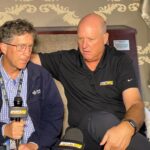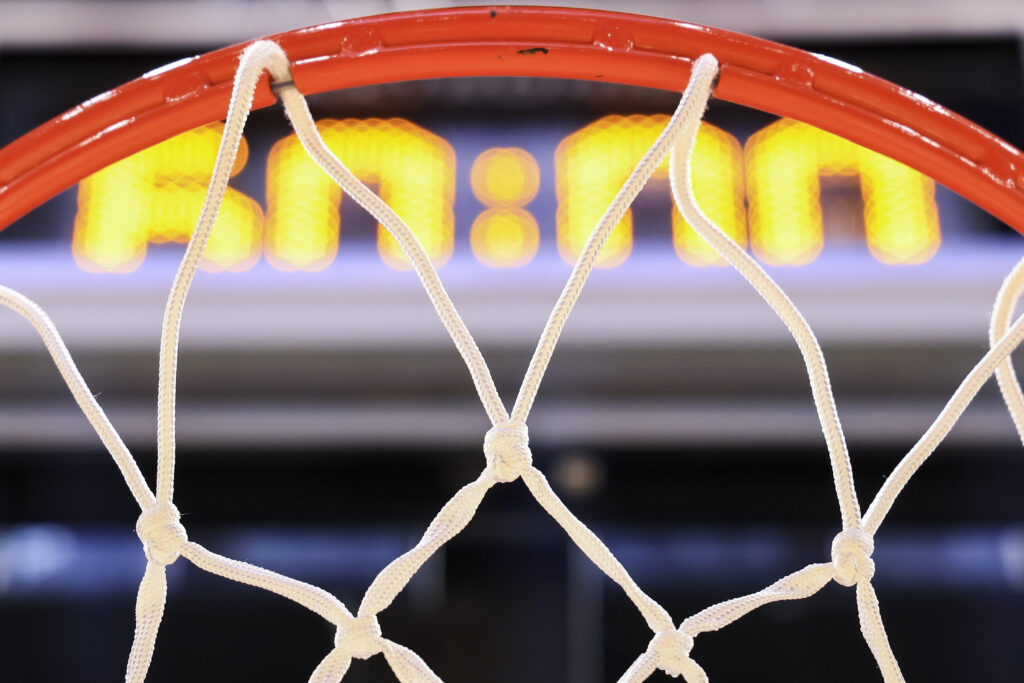The western third of the country has not produced a national champion since Arizona was the last team standing back in 1997 — so long ago that Rick Majerus was running the show at Utah, Ernie Kent was leading Saint Mary’s and Mark Few was a little-known Gonzaga assistant.
From a numbers standpoint, the region has its best chance in eons to end that drought.
Selection Sunday was good to college basketball in the Mountain and Pacific Time Zones. Very, very good.
Colorado, Colorado State and Boise State were three of the last four teams to make the field of 68 — and Nevada wasn’t far ahead of those three — as the region collected a bonanza of NCAA Tournament at-large bids relative to past years.
All told, the Mountain West has five at-large teams, the Pac-12 has three, the West Coast Conference claims one and the transplant, Brigham Young, also cleared the at-large bar following its first year in the Big 12.
The total of 10 at-large bids for the Mountain and Pacific Time Zones is the most in at least a quarter-century.
Granted, the seeds aren’t stellar. Only No. 2 Arizona was assigned a top-four seed in any region, but there are a slew of No. 5s (Gonzaga, Saint Mary’s and San Diego State), plus a No. 6 (BYU).
And as we witnessed last year, when the Final Four featured two No. 5s (Miami and SDSU) and a No. 9 (Florida Atlantic), seeds only mean so much once the Madness begins.
Add the six automatic qualifiers from conferences across the region, and the western third of the country has 16 of the 68 teams.
With the shape of college basketball changing dramatically this summer as 10 schools depart the Pac-12 for conferences in the eastern half of the country, the 2024 tournament offers a final — and substantial — regional feel.
Other winners, and a handful of losers, from Selection Sunday …
Winner: The Mountain West. In addition to the context provided above, we should note the six total bids constitute a record for the conference. Most of the seeds are in the double digits, and two teams are slotted for the First Four (Boise State and Colorado State). But the MW has little room to complain and plenty of reasons to celebrate.
 Loser: Washington State. The Cougars received a reasonable seed (No. 7) given their soft non-conference schedule, but they drew a nasty opponent: Drake, which won the Missouri Valley and features one of the nation’s top players in guard Tucker DeVries. And if the Cougars win, their prize is a second-round date with Iowa State, which just plastered Houston in the Big 12 title game.
Loser: Washington State. The Cougars received a reasonable seed (No. 7) given their soft non-conference schedule, but they drew a nasty opponent: Drake, which won the Missouri Valley and features one of the nation’s top players in guard Tucker DeVries. And if the Cougars win, their prize is a second-round date with Iowa State, which just plastered Houston in the Big 12 title game.
Winners: Washington State and Oregon State. The Cougars and Beavers will share all revenue earned by the Pac-12 teams in the 2024 tournament. What recently looked like a two-bid league ended up receiving four (one automatic and three at-large). With a long-term value of approximately $2 million per game played for each conference, NCAA units will spin off at least $8 million to the schools.
Loser: Gonzaga. The Bulldogs were seeded well (No. 5) but drew a brutal first-round assignment in No. 12 McNeese State, which won 30 games and won’t be the slightest bit intimidated by Gonzaga’s reputation. The Zags are on upset alert.
Winner: Caleb Love. If form holds in the West, Arizona’s senior guard will lead his current team against his former team, No. 1 seed North Carolina, in an Elite Eight showdown at Crypto.com Arena in Los Angeles. The Wildcats have a path so smooth it’s as if coach Tommy Lloyd crafted the brackets himself.
If form holds in the West, Arizona’s senior guard will lead his current team against his former team, No. 1 seed North Carolina, in an Elite Eight showdown at Crypto.com Arena in Los Angeles. The Wildcats have a path so smooth it’s as if coach Tommy Lloyd crafted the brackets himself.
Losers: Past champs and blue bloods. Not that they deserved to make the field, but the following teams will be watching the NCAAs from home: UCLA, Louisville, Syracuse, Indiana and Villanova. That’s 22 national titles worth of disappointment, if you’re wondering.
Winner: Nebraska. The Cornhuskers are the No. 8 seed in the South, their first NCAA appearance since the late 2010s. Further evidence that Nebraska is — yes, we’ll say it — a basketball school.
Losers: Alabama and Auburn. The SEC rivals earned No. 4 seeds and were sent as far as possible for their opening-round games. Then again, they were sent to the same place, Spokane. At least the few fans who make the trip can meet up for dinner the night before tipoff. Oh, and a third team from Alabama, UAB, is also playing in Spokane.
Winner: Long Beach State. The school announced Monday that it was parting ways with longtime coach Dan Monson, who decided to lead his team in the Big West tournament. Three consecutive victories later, The Beach is dancing — and one of the best stories of the month. LBSU will face Arizona in the first round on Thursday.
Loser: The Big East. Owner of three national titles in the past eight years, the conference received just two at-large bids (Creighton and Marquette) — half the Mountain West’s total. Unreal.
Winners: SEC and Big 12. Each league placed eight teams in the field — a record for the latter. Next up in the conference hierarchy were the Big Ten and Mountain West, with six bids each, followed by the ACC with five.
Loser: Indiana State. The Sycamores won the Missouri Valley regular season but not the tournament and were left out of the at-large field. With a No. 28 ranking, they become the highest-ranked team of the NET era to be snubbed by the committee.
Winner: Salt Lake City. One of two opening-round sites in the western third of the country — Spokane is the other — will showcase a slew of high-interest teams (Arizona, Gonzaga and Kansas), plus a great story (Long Beach State). SLC should claim one of the hottest tickets of the opening weekend.
Loser: Iowa State. The Cyclones obliterated Houston in the Big 12 title game but didn’t climb to the No. 1 seed line, instead landing the No. 2 in Connecticut’s region. Why? Probably because of an awful non-conference schedule. The committee is usually clear on this matter: Challenge yourself in the portion of the schedule you control, or face the consequences.
Winners: Us. Let the Madness begin.
*** Send suggestions, comments and tips (confidentiality guaranteed) to pac12hotline@bayareanewsgroup.
*** Follow me on Twitter/X: @WilnerHotline
*** Pac-12 Hotline is not endorsed or sponsored by the Pac-12 Conference, and the views expressed herein do not necessarily reflect the views of the Conference.
Related posts:

(AP Photo/Ralph Freso, File)
Wilner – Today’s Big 12 Makeover, Impact on Pac-12 Pac-12 bowl projections: USC to the playoff while Washington is left to ponder a giant ‘what if’
Pac-12 bowl projections: USC to the playoff while Washington is left to ponder a giant ‘what if’
 Hotline mailbag: Peeking at the ’23 schedules, expansion timeline, buyer’s remorse in L.A.(?) and loads more
Hotline mailbag: Peeking at the ’23 schedules, expansion timeline, buyer’s remorse in L.A.(?) and loads more
 Wilner: Kliavkoff’s risky strategy, an alternate Pac-12 universe (with ESPN), the MLS on Apple, unequal revenue shares and more
Wilner: Kliavkoff’s risky strategy, an alternate Pac-12 universe (with ESPN), the MLS on Apple, unequal revenue shares and more
Jon Wilner
Jon Wilner has been covering college sports for decades and is an AP top-25 football and basketball voter as well as a Heisman Trophy voter. He was named Beat Writer of the Year in 2013 by the Football Writers Association of America for his coverage of the Pac-12, won first place for feature writing in 2016 in the Associated Press Sports Editors writing contest and is a five-time APSE honoree.
